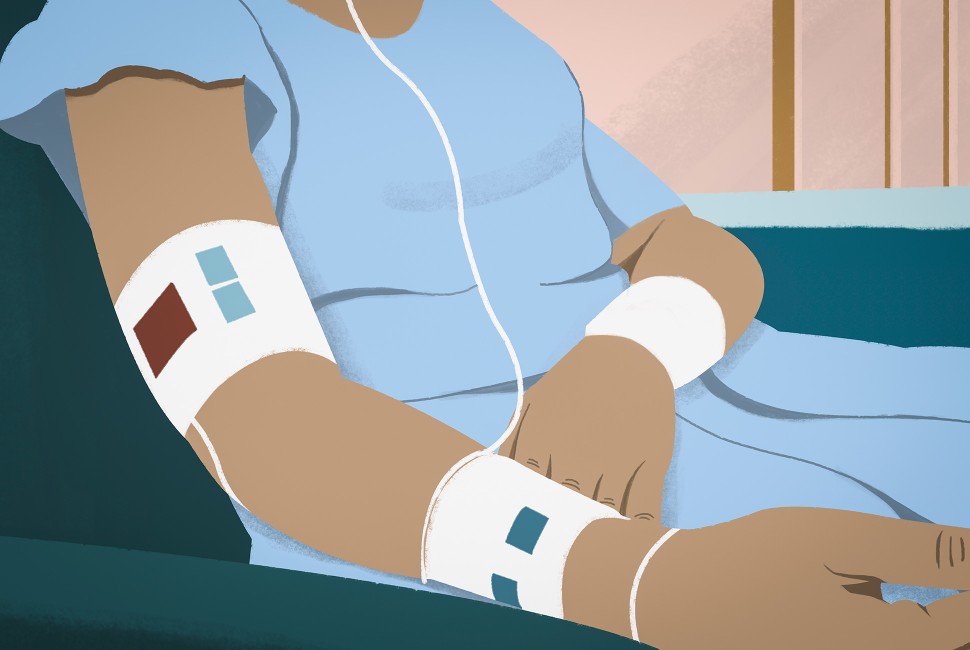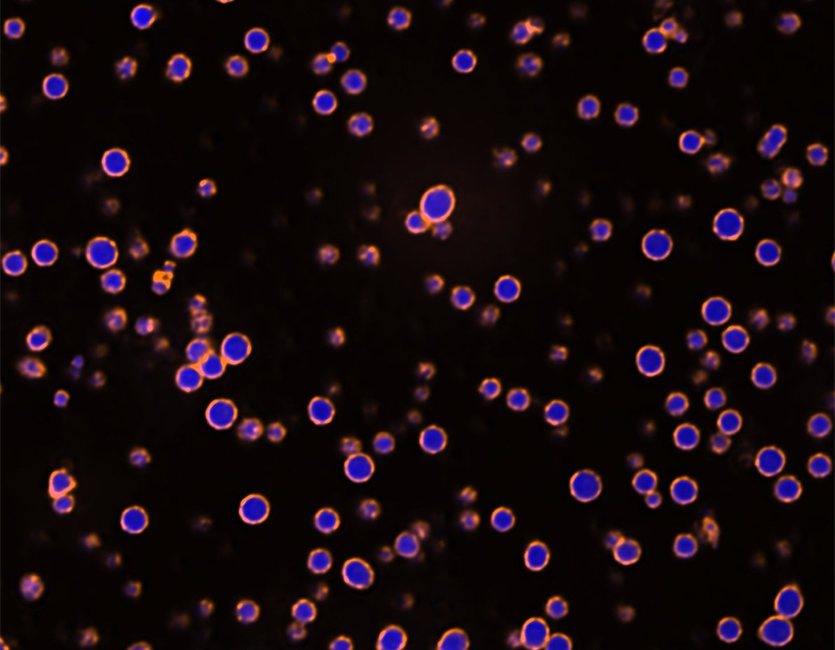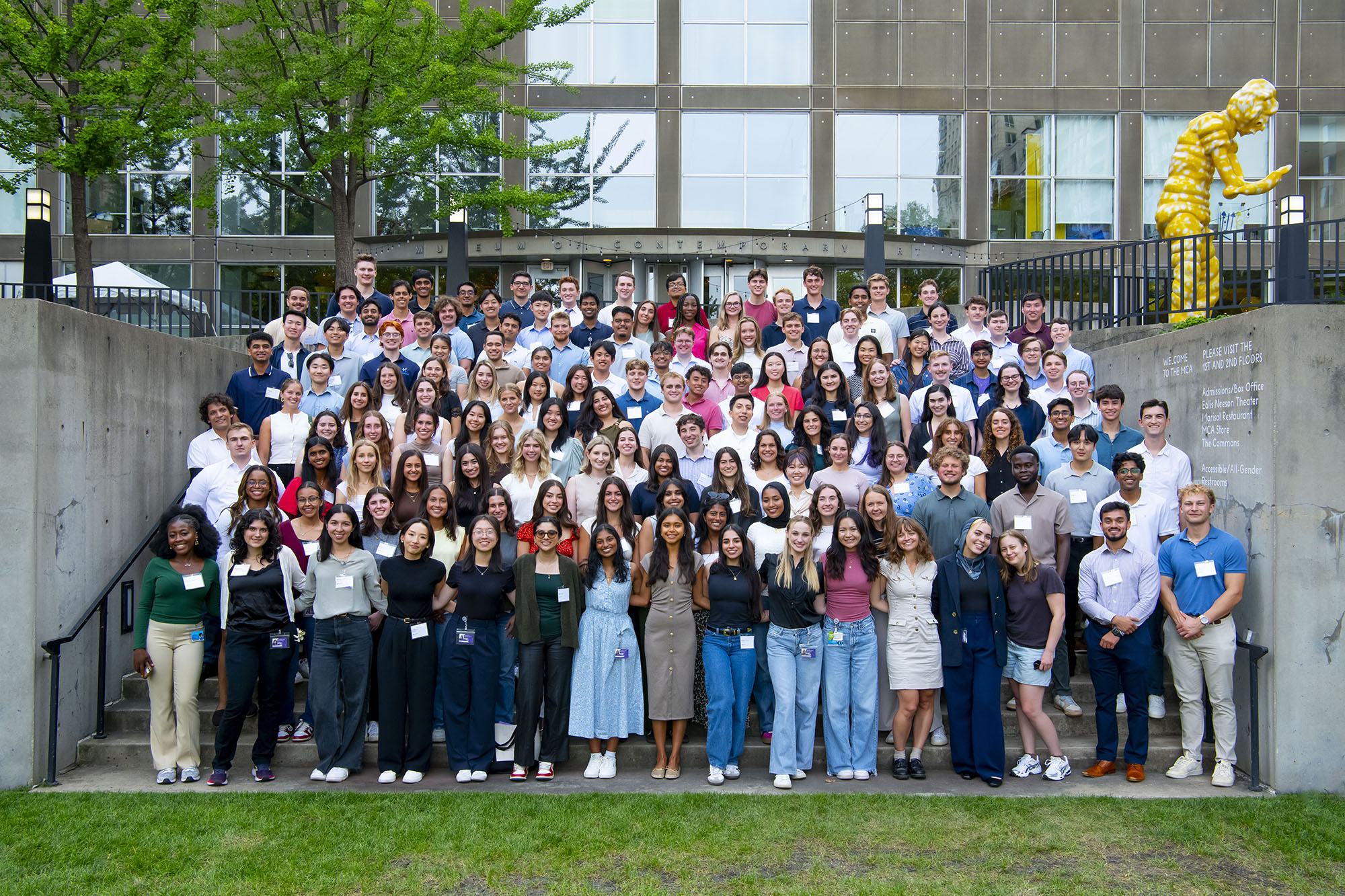Media Coverage
The work done by Northwestern University Feinberg School of Medicine faculty members (and even some students) is regularly highlighted in newspapers, online media outlets and more. Below you’ll find links to articles and videos of Feinberg in the news.
-
HealthDay
–
Heart Failure Patients Shouldn’t Stop Meds Even if Condition Improves: Study
These results show that “we should tread lightly” when patients ask to be taken off their heart medications, said Dr. Jane Wilcox, an assistant professor of cardiology with Northwestern University’s Feinberg School of Medicine, in Chicago. For the patients who relapsed, their heart failure came back “within just eight weeks of withdrawal of medication. Eight weeks. Two months,” Wilcox said. “The question of recovery versus remission has potentially been answered by this pilot study. Currently, in 2018, we have no true signature of recovery,” Wilcox said. “These patients indeed are in cardiac remission.” Dr. Donald Lloyd-Jones is chair of preventive medicine at Northwestern. The study helps inform “an incredibly important clinical question that comes up all the time,” he said.
-
MSN.com
–
Is It Harder to Lose Weight as You Age?
Monitor your caloric intake. You might be able to get away with not counting your calories in your 20s. But as you move into your 30s and 40s, and the number of calories you need drops, it’s a good idea to keep track of your caloric intake, says Audra Wilson, a clinical dietitian with the Northwestern Medicine Metabolic Health and Surgical Weight Loss Center. A typical sedentary 60-year-old woman should consume 1,600 calories daily, while a sedentary man of the same age should have 2,200 calories a day, according to federal government dietary guidelines. Your ideal weight range depends in part on your height. The National Heart, Lung, and Blood Institute has an online tool that you can use to calculate your BMI and check whether you’re overweight for your height.
-
WTTW
–
Infertility Myths and Facts as Michelle Obama Reveals Miscarriage, IVF
So how common is this type of journey into parenthood? We asked <a href="https://www.feinberg.northwestern.edu/faculty-profiles/az/profile.html?xid=36241"Dr. Christina Boots, assistant professor of obstetrics and gynecology specializing in reproductive endocrinology and infertility at Northwestern’s Feinberg School of Medicine. Below, an edited Q&A with Boots. Is infertility more common than we talk about or know about? I think it is. It occurs in about at least 10 percent of the population. And I think most people aren’t talking about when they’re struggling. Whether they’re struggling and it just takes them longer or it happens on their own. Or whether they’re having to seek fertility treatment. There was a recent survey out that showed that 30 percent of the population either knows somebody who went through fertility treatment or went through it themselves. So I think it is happening a lot more often than anybody realizes.
-
The Washington Post
–
New exercise guidelines: Move more, sit less, start younger
The advice is the first update since the government’s physical activity guidelines came out a decade ago. Since then, the list of benefits of exercise has grown, and there’s more evidence to back things that were of unknown value before, such as short, high-intense workouts and taking the stairs instead of an elevator.“Doing something is better than doing nothing, and doing more is better than doing something,” said Dr. Donald Lloyd-Jones, a preventive medicine expert at Northwestern University in Chicago. Only 20 percent of Americans get enough exercise now, and the childhood obesity problem has prompted the push to aim younger to prevent poor health later in life.
-
San Francisco Chronicle
–
Heart meeting features fish oil, vitamin D, cholesterol news
That was confusing, so the new guidelines blend both approaches, setting targets based on the formula and considering individual circumstances, such as other medical conditions or a family history of early heart disease. “It will never be as simple as a single cholesterol number,” because that doesn’t give a clear picture of risk, said one guideline panel member, Dr. Donald Lloyd-Jones of Northwestern University.
-
U.S. News & World Report
–
New Exercise Guidelines: Move More, Sit Less, Start Younger
The advice is the first update since the government’s physical activity guidelines came out a decade ago. Since then, the list of benefits of exercise has grown, and there’s more evidence to back things that were of unknown value before, such as short, high-intense workouts and taking the stairs instead of an elevator.“Doing something is better than doing nothing, and doing more is better than doing something,” said Dr. Donald Lloyd-Jones, a preventive medicine expert at Northwestern University in Chicago. Only 20 percent of Americans get enough exercise now, and the childhood obesity problem has prompted the push to aim younger to prevent poor health later in life.
-
Associated Press
–
New exercise guidelines: Move more, sit less, start younger
The advice is the first update since the government’s physical activity guidelines came out a decade ago. Since then, the list of benefits of exercise has grown, and there’s more evidence to back things that were of unknown value before, such as short, high-intense workouts and taking the stairs instead of an elevator.“Doing something is better than doing nothing, and doing more is better than doing something,” said Dr. Donald Lloyd-Jones, a preventive medicine expert at Northwestern University in Chicago. Only 20 percent of Americans get enough exercise now, and the childhood obesity problem has prompted the push to aim younger to prevent poor health later in life.
-
Chicago Tribune
–
With better drugs for high cholesterol, doctors become more ambitious with treatment goals
In patients whose risk for having a heart attack or stroke in the coming decade puts them on the bubble for starting medication, a coronary artery scan can serve as a “tiebreaker,” said Dr. Neil J. Stone of Northwestern University’s Feinberg School of Medicine, who helped draft the new guidelines. Stone, who also worked on the 2013 recommendations, touted the new guidelines’ focus on “shared decision-making” between patients and their doctors, in which they jointly consider the pros and cons of cholesterol-lowering treatments.
-
The Wall Street Journal
–
FDA Considers Making Food Labels Disclose Sesame to Help Allergy Sufferers
“It definitely seems to be something that is becoming more prevalent,” says Ruchi Gupta, a professor of pediatrics at the Northwestern Feinberg School of Medicine. “People with a sesame allergy tend to have a pretty severe reaction and it’s a very difficult one to avoid because it’s in so many things.” Dr. Gupta is first author of a study expected to be published next week in the journal Pediatrics showing that 34% of children with a sesame allergy reported having to go to the emergency department one or more times over the previous year, compared to 19% for all other food allergies.
-
U.S. News & World Report
–
Why It’s Harder to Lose Weight as You Age
Monitor your caloric intake. You might be able to get away with not counting your calories in your 20s. But as you move into your 30s and 40s, and the number of calories you need drops, it’s a good idea to keep track of your caloric intake, says Audra Wilson, a clinical dietitian with the Northwestern Medicine Metabolic Health and Surgical Weight Loss Center. A typical sedentary 60-year-old woman should consume 1,600 calories daily, while a sedentary man of the same age should have 2,200 calories a day, according to federal government dietary guidelines. Your ideal weight range depends in part on your height. The National Heart, Lung, and Blood Institute has an online tool that you can use to calculate your BMI and check whether you’re overweight for your height.






